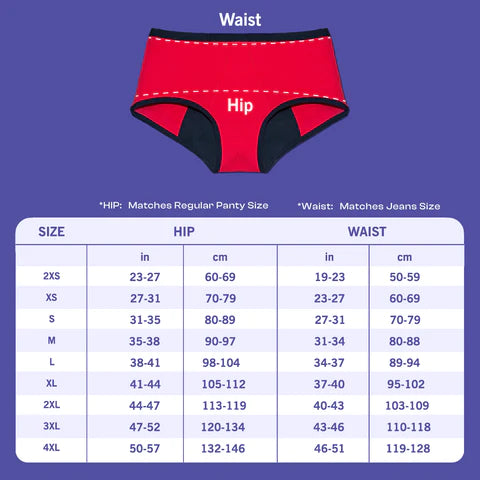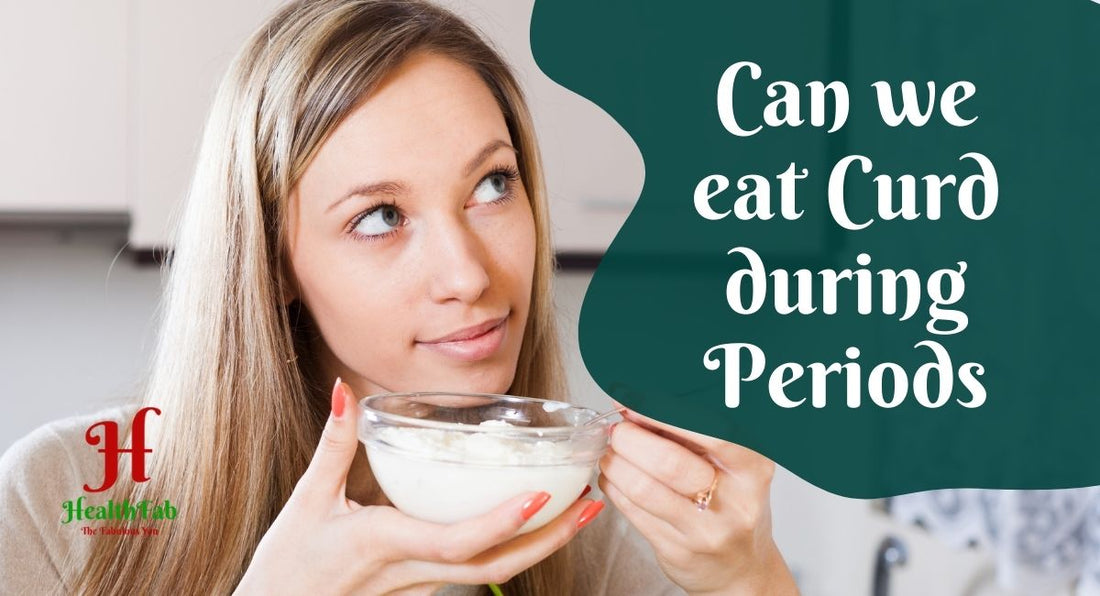Key takeaways:
- You can safely consume curd (yogurt) during your period.
- It can help ease menstrual pain and cramps.
- Consuming curd can boost your mood and energy levels.
- Curd assists in hydrating the body and replacing lost nutrients.
Periods are a natural part of life, but they can also cause discomfort or pain. Among the many questions that swirl in the minds of women during periods is - Can you eat curd (yoghurt) during periods?
We will answer everything you need to know about eating curd on periods, its benefits, side effects and myths associated with it.
Can we really eat curd during periods?
Yes, you can consume curd (dahi) during your period as it provides a number of health benefits. Probiotics present in curd are helpful for digestion. It also prevents bloating, something that a lot of women suffer when they are in their periods.
Curd has anti-inflammatory properties and can be quite effective in easing cramps and muscle pain at home. Its vitamins and minerals (such as calcium, magnesium and B vitamins) replenish your energy and steady mood swings.
It supports your gut, calms pain, and is a mood booster, So curd can be a food choice when you are on your periods.
Adding Dahi or Yoghurt to your diet makes you feel better! It can make you feel relaxed and eases muscle pain during painful periods.

Myths and Facts About Eating Curd During Periods
Here are some myths and the actual fact about eating curd.
Myth 1: Having curd during periods causes cold.
Fact: Though curd has a cooling effect, it does not lead to cold. On the other hand, it contains Lactobacillus acidophilus that boost gut health and immunity.
Myth 2: Curd increases menstrual cramps.
Fact: Curd, in fact, is rich in magnesium, which reduce period pain by relaxing muscles.
Myth 3: Curd leads to indigestion during periods.
Fact: The good bacteria in curd help with digestion. Its consumption in moderation will enable the digestive system to stay healthy.
Myth 4: Curd worsens the period flow.
Fact: Curd doesn't have any effect on the menstrual flow during the menstrual cycle. It has vital nutrients required for overall health.
Benefits of having Curd during menstruation
1. Cardiovascular health is improved
Curd, as previously stated, aids in the management of high blood pressure in an indirect manner. It contains magnesium, which is beneficial to people who have high blood pressure. Yogurt is also a good source of calcium, which aids in muscle contraction, which is beneficial to the heart muscles.
2. Eases Menstrual pain and cramps
Curd (yoghurt) is prepared by bacterial fermentation. It is extremely useful in easing menstrual pain. You can have it in the form of smoothies, milk, energy drinks and lassi, which helps you to regain your energy level real fast.
This also helps enhance healthy gut bacteria. You can also sprinkle some sugar on top of it and enjoy it. Another popular way to consume is by preparing buttermilk.
3. Hydrates the body
Curd during menses helps in hydrating the body and replacing the lost nutrients. Your body will feel nourished after the consumption of curd.
Since you're fatigued during this time of the month, you can have curd to bring back the lost nutrients. Notably, curd also comes with
If you suffer from PMS symptoms, such as mood swings and bloating, then I highly suggest you have curd in the form of buttermilk or lassi if you don’t enjoy having it directly.
4. Curd helps boost your mood
Curd contains good bacteria that keep the gut healthy. Good gut health is associated with good brain function and has an influence on mood. Healthy gut flora can do a great job of keeping one's mood stable and anxiety at bay. This can be seen whereby, by ensuring a healthy gut microbiome, curd aids in keeping a more positive emotional state.
What experts recommend
Some experts say that having curd during menstruation helps in reducing discomfort and symptoms of PMS. You may feel that eating fruit and leafy veggies in your diet may reduce symptoms. Diets high in meat, oil, sugar, and salt increase period cramps.
For some women, dehydration may be the culprit for period headaches. In such a case, eat food with high water content, like cucumbers and watermelon, to rehydrate the body.

Side effects of eating curd during periods
There aren't generally significant side effects associated with consuming curd during periods. Some of the side effects are:
- Bloating
- Gas
- Indigestion
- Mucus buildup
- Cold symptoms
If someone has lactose intolerance or a dairy allergy, they might experience digestive disorders such as bloating, gas, or diarrhea.
If you are more sensitive to dairy products during your periods, then you may experience changes in digestion or mild discomfort.
What ayurveda says about eating curd
Ayurveda is an ancient system of medicine. In Ayurveda, curd is considered a wholesome and nourishing food. According to Ayurvedic studies, curd is known for its cooling properties. It is often termed suitable for balancing excess heat or acidity in the body. It is often added as a part of a balanced diet. Individuals with a cold or cough may want to eat curd in moderation - Ayurveda principle suggests.
Why you shouldn't eat curd at night?
Card should not be taken at night as it can cause mucus and digestive problems. Some people even feel that curd is heavy and so regular curd during night time can be an indigestible food. It may cause uncomfortableness, which may not give sound sleep. It's generally better to eat it by day, for good digestion and health.
What are some foods to avoid during periods?
It is always suggested you eat food that is healthy. Here are some foods to avoid during menstruation.
- Highly processed and sugary foods
- Reducing coffee intake
- Fatty and fried foods
- Dairy Products
- Sweets and sugary snacks
- Carbonated beverages
- Avoid Alcohol during periods
Does eating curd help in period cramps
Yes, eating curd may help reduce period cramps for some women. Curd is rich in calcium. It helps in muscle relaxation and potentially reduces cramps. The probiotics in curd also helps enhance the gut health.

Can eating curd delay your periods?
No, there is no scientific evidence to suggest that curd can delay menstrual periods. Menstrual cycles occurs due to hormonal changes in your body. Curd does not have a direct impact on the timing of periods. You should always eat healthy foods and avoid junk, and keep yourself active.
Do read our latest blog on amazing benefits of curd for hair care.
Summary
Yes, you can have curd during your period. It has lots of benefits, including the ability to aid in digestion, reduce cramps and boost your mood, courtesy of its probiotics and nutrients. But each body reacts differently, so do try and see if curd works for you. If you have any concerns or feel uneasy, talk with your doctor about any concerns to get individualized suggestions.
Frequently asked questions (FAQ)
Q.1: Does curd reduce period pain?
Ans: Some women find relief from menstrual cramps by including curd in their diet. The calcium in curd and Lactobacillus acidophilus may help relax the muscles which may ease painful periods.
Q.2: Does eating curd help in irregular periods?
Ans: Irregular periods can be caused by various factors such as hormonal imbalances, stress, or changes in weight etc. Rather then blaming curd, we recommend you visit a doctor and get evaluated.
Q3: What is the right time to eat curd?
Ans: Curd is best consumed during the day or early evening. Eating it at night might lead to digestive issues for some people.
Q4: Is curd good for stomach gas?
Ans: Yes, curd can help with stomach gas. The good bacteria present in curd support digestion and can reduce bloating and gas.
Q5: How much curd should you consume per day?
Ans: So, 1 to 2 cups a day would be a good dosage of curd. That means good bacteria without overload to your tummy.
References
- Menstruation related myths in India: strategies for combating it
- Therapeutic use of Curd in Digestive Disorders in Ayurveda
- The relationship between dietary habits and menstruation problems in women: a cross-sectional study


